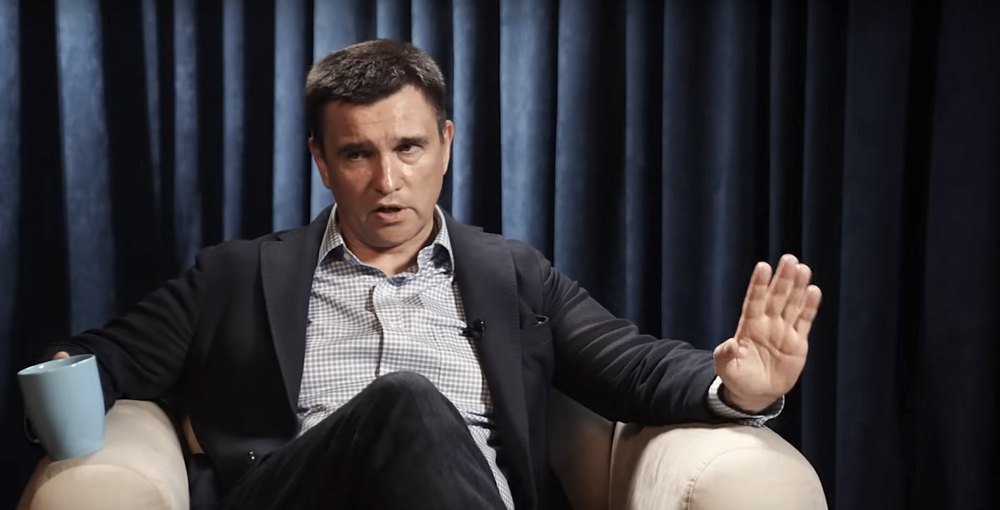
“In Europe and Western Asia, there are players who are ready to use any force to secure their interests.”
We are witnessing the legitimisation of certain actions by Israel on Iranian territory with the aim of non-proliferation of nuclear weapons. In East Asia, can we assume scenarios similar to those in the West?
North Korea has nuclear weapons. As for South Korea, since it possesses a nuclear cycle, intellectual and financial potential, and political will, if it wants to become nuclear, it is — in my opinion — a matter of a few years.
South Korea currently relies on what is known as the extended deterrence principle. This means that the Americans are investing in its security.
If the South Korean leadership (elections were recently held there) at some point decides that, for some reason, it does not fully trust the United States — that their presence may be reduced — and, as a result, the Koreans say “we are becoming nuclear,” the next day, or perhaps the day after, the Japanese — who also have a nuclear cycle, and the necessary financial and intellectual resources — may follow suit. Then the Indonesians may look at them and decide to go nuclear. Then the Australians, the Vietnamese.
All of East Asia could become nuclear in a maximum of five years. Yes, some countries that do not have elements of the nuclear cycle would need more time, but in principle, they can do it too.
Then everyone will threaten everyone else. And a fundamental question will arise — one that has already emerged in connection with what is happening between Israel and Iran. It is a question of legitimacy and sovereignty.
A situation is now unfolding that further legitimises the use of military and non-military force against a threat considered vital or existential. You declare that someone is an existential threat to you, and you use all means at your disposal.
Then, of course, everything that has been written since 1945 — including the UN Charter and the entire body of international law — becomes comatose.
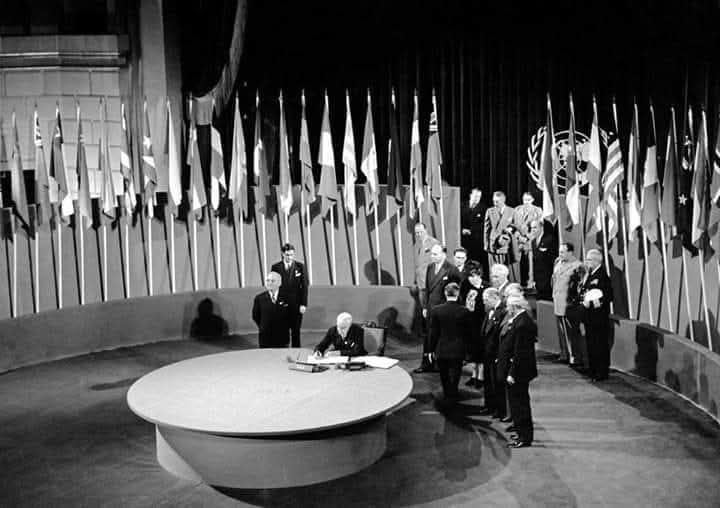
The question of legitimacy and sovereignty is becoming non-trivial.
It is very difficult for us, because Russia is attempting to limit it in all four key areas: territory, domestic policy, foreign policy and defence sovereignty.
I believe the Kremlin will actively promote this logic and argue: “Why? Israel is concerned about its security, and if it is concerned, then we are concerned too — so we use military and any other force to eliminate threats to this security.” And this opens Pandora’s box.
Did this not happen in our context?
It did not happen in our context because, for much of the world, it was seen rather as an exception — a personal decision by Putin.
Now it is clear that in Europe and Western Asia, there are players who are prepared to use any force to, as they believe, secure their interests. The next one could be anyone. For example, we have begun to discuss East Asia.
What has happened does not simply lower the bar for all the complex considerations surrounding the use of nuclear weapons — it effectively removes the bar altogether.
Our situation was once considered unique. Now, it is no longer unique. Many players will begin advocating for limiting sovereignty in the name of protecting interests, and the logic of spheres of influence will return. And if someone wants to limit your sovereignty, this becomes a vital threat to you. In response, deterrence is required.
At present, deterrence can only be nuclear — or there will emerge a 21st-century form of deterrence. I do not know — perhaps biotechnology, artificial intelligence, and so on. Now, everyone will be actively working on this.
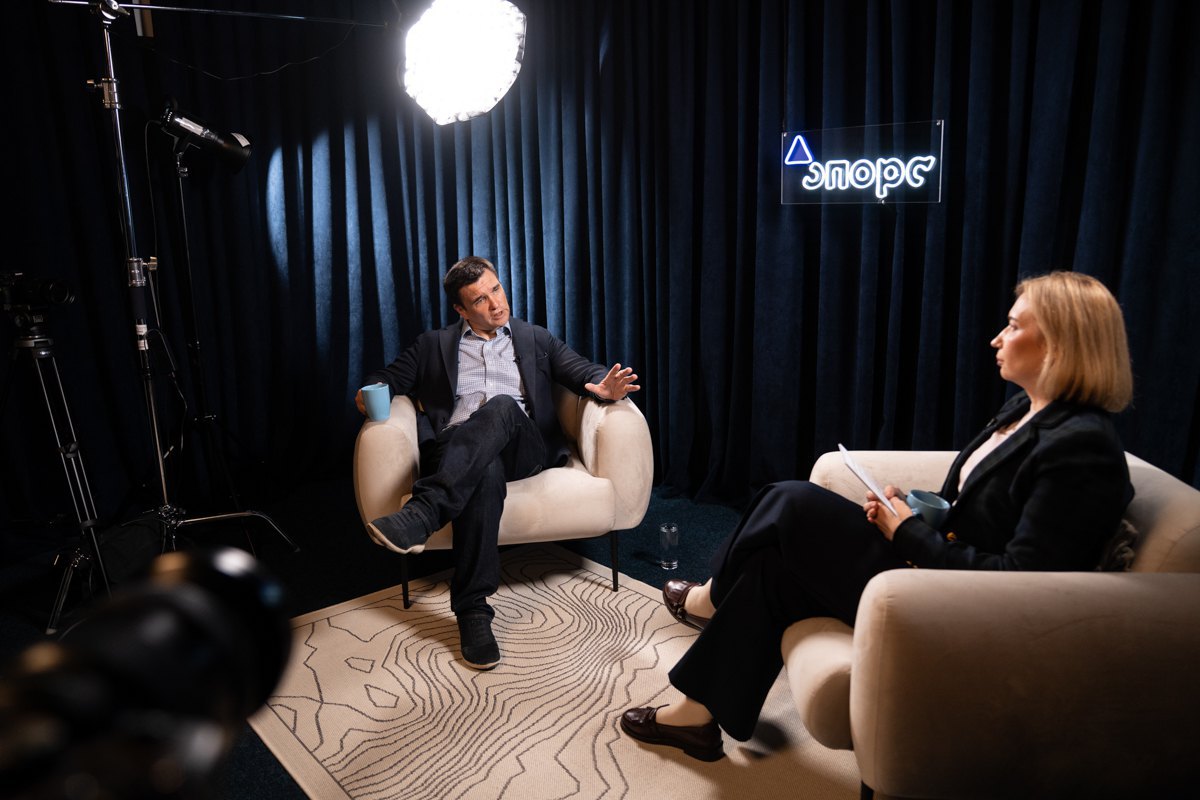
“The logic of the good uniting against the bad is definitely not Trump’s logic.”
If North Korea decides to use nuclear weapons against South Korea, do you see the possibility that the United States will act against it in the same way as it did against Russia over the war in Ukraine?
Trump’s worldview is that there are no good guys and bad guys. There are simply those who exist in the world, and you have to talk to them. If they have more power, you have to talk to them more. If they have less, you talk to them less — and instead give them orders and instructions. When Trump speaks about wanting Putin back in the G7, he is entirely sincere. And the logic that the good guys unite against the bad guys is definitely not Trump’s logic.
Moreover, he sees the world as divided between three major players: the United States, China and, in a sense, Russia. He does not consider Europe a player at all. For him, Europe is something towards which he feels a mixture of contempt and disdain. He respects the Indians, but does not yet consider them players — although this may be temporary.
The question arises: are any permanent alliances possible during Trump’s presidency — any long-term relationships based on a system of common interests and values? If Trump makes decisions in this administration personally, then his understanding of interests is what it is. Whether alliances with the United States that you believe in are possible is a significant question.
NATO is an acronym that, for us, is the quintessence. We sought to join it — and are still seeking to join — because it is something we hope can ensure our security. The question is whether Trump understands Article 5 of the North Atlantic Treaty in the same way as all previous administrations. It means that if one ally is attacked, all the others come to its aid. How exactly they do this is their immediate decision.
Hypothetically speaking, if Putin crosses the border with Estonia in a conventional operation, Trump may say: “You know, I’m continuing nuclear deterrence. You weren’t hit with nuclear weapons, were you? Let the Europeans deal with that — and we’ll focus on Asia.”
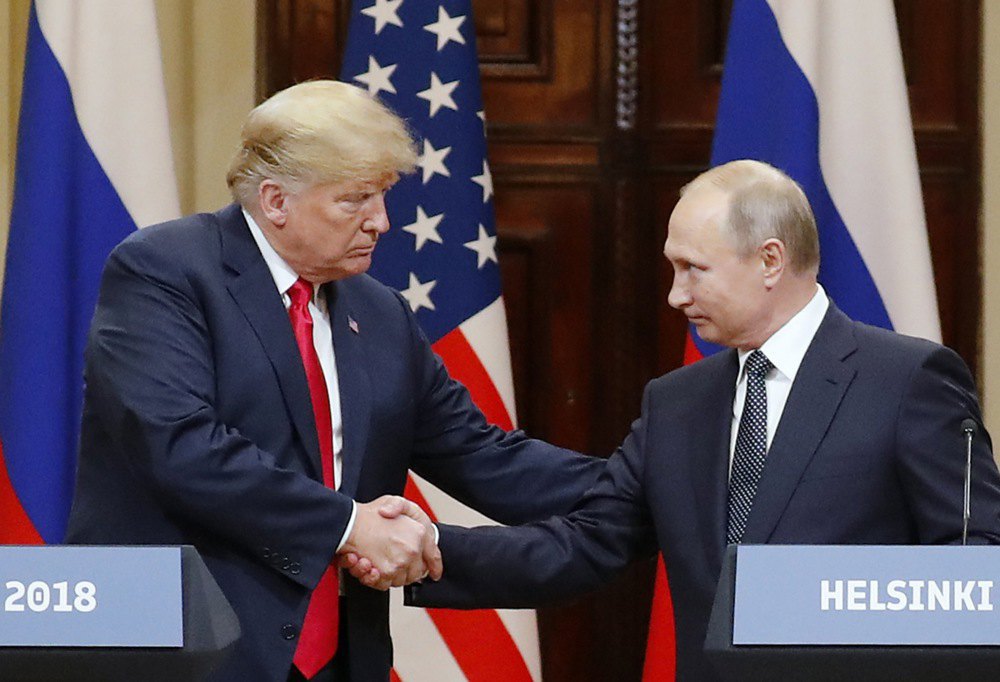
Is such an interpretation of the Washington Treaty possible?
It is undesirable, but theoretically possible. If, at some point, we begin to consider such interpretations, Article 5 loses much of its meaning. Is it a concrete guarantee that, like musketeers, all for one and one for all will go to the end? The entire logic of deterrence and security may, at some point, take on a different form.
We must also proceed from this and understand that what we believed in — and what we strive for — does not necessarily guarantee 100% security for us.
How would you comment on the events at the G7 meeting, when Trump spent half a day exchanging views with individual leaders on Iran and Israel, but did not address the issues of Europe and Ukraine? Is this a clear demonstration to Europe that it is not in the sphere of interest, that it is not given any guarantees or attention — is this the behaviour of a specific person or state policy?
Both. I followed how the final document was agreed upon. In the end, it was decided that there would be no document — so as not to irritate Trump. Can you imagine — avoiding a document just to avoid irritating one American president? There has always been a final document, a demonstration of certain intentions, a political framework that the G7 agrees on and presents to the world — but with Trump, this was impossible. Eventually, he agreed to certain wording, and Gaza was added as an afterthought.
I was not sure Trump would even attend. But he came, spoke to everyone, shook some hands, trolled some people — like Macron. He does not care whom he trolls; he does it quite deliberately. And in that, I believe, there is a great deal of contempt.
I am not sure whether he despises the people he speaks to directly — but he certainly despises Europe. Remember the speech by US Vice President J. D. Vance. For some who follow that logic, it was a very well-received speech: Europe was shown what it can and should do. Today, there is no shared understanding — not only in terms of interests but also in terms of values — between what exists in Europe and what exists in this administration.
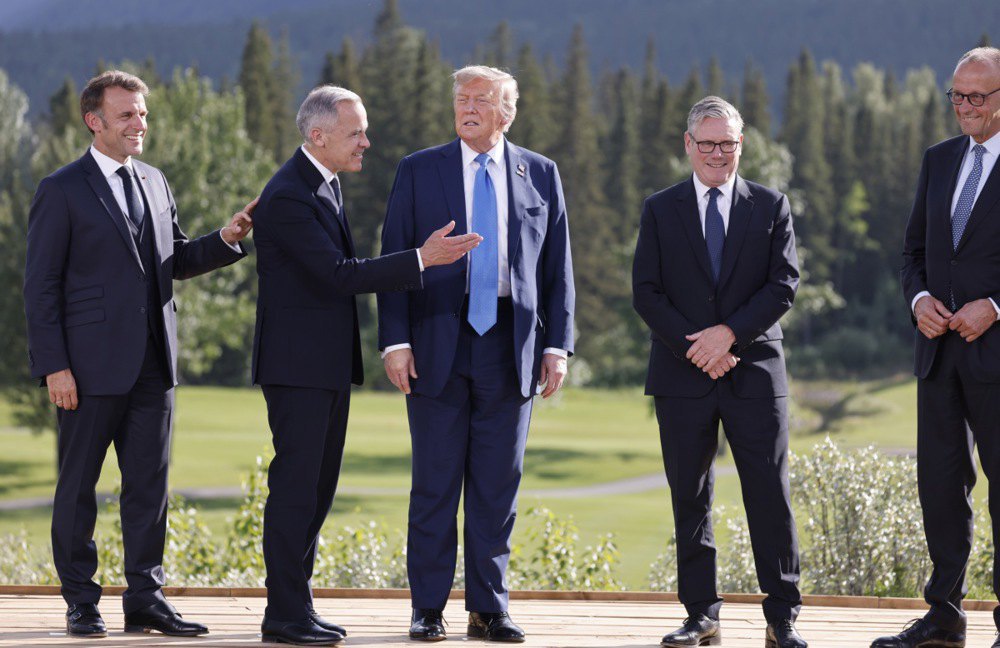
I would pose another question: does the collective West still exist in the way it did ten years ago? I believe it does not. The very system of decision-making within the West has changed under the Trump administration — the understanding of who supports whom, how, and under what conditions.
The logic of this administration resembles more the logic of the Old Testament. In Israel, this is largely present — as it is with us: an eye for an eye, a tooth for a tooth, a bite for a trident. This is a normal logic for people during wartime. And European logic is certainly not the logic of the Old Testament.
“Even now, a significant part of the West, especially the political sphere, is not ready to accept that security comes at a price.”
During the existential tests for international law — when Russia attacked Georgia, annexed the Crimean Peninsula and started the war in Ukraine — did it not seem that the West adhered to common values and a common position on territorial integrity and sovereignty?
There is one big “but.” It lies in the fact that the West did not perceive what was happening in Georgia and the occupation of Crimea as an intentional threat.
Sanctions over Crimea were debated for several months — there was no willingness or shared consensus to impose them. They had to be fought for.
The West took a long time to collect itself and assess whether this was a fundamental change in the situation — one that posed serious threats.
It was only in 2022 that the West realised the entire system upon which it had relied for predictability was changing. Only then did at least some political will to act consistently begin to appear.
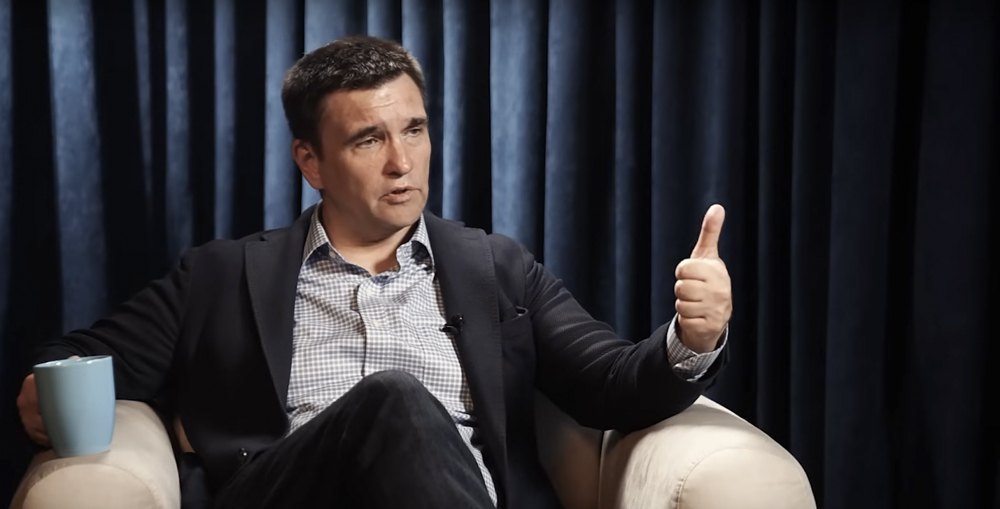
Why? Because analysts and intelligence services were not working, or because electoral democracy has flaws?
No, intelligence was functioning properly. After what happened in Georgia, I spoke with the Germans. Without naming names, I can say it was nearly impossible to speak with politicians — they wanted to distance themselves from it. But it was possible to speak with those working in German intelligence. They were willing to discuss scenarios and genuinely recognised the threats.
And even now, in Europe, when you speak to politicians, many want to find a way out of this situation. Among the military and those engaged in various security-related fields, the mood is entirely different. Look at security conferences and forums — where the military are present, the discussion is much more engaging and profound. Then the politicians arrive — and the empty, vague conversation resumes.
Even now, a significant part of the West — particularly the political sphere — is not ready to accept that security must be paid for and that investments must be made in security. And it is even less ready to explain this to the public.
In some countries, politicians openly say that if an invasion occurs, they will surrender. They want to eat well, relax well — and through negotiations, arrive at some formula for coexistence and cohabitation. It seems acceptable to trade away sovereignty and territorial integrity. Meanwhile, for us, the preservation of statehood is existential — a matter of survival.
A significant part of Europe still either does not want to — or is afraid to — think about real security. Or both. And we must talk to them about this.
We are also tempted to think that after the war we will be very successful — that we will have hundreds of companies and make money. The military say outright that private military companies from many countries are watching them and are ready to buy up the best of them in bulk. The question then arises: how do we become the best, and how do we retain that? This demands a very honest discussion — and our own clear policy.
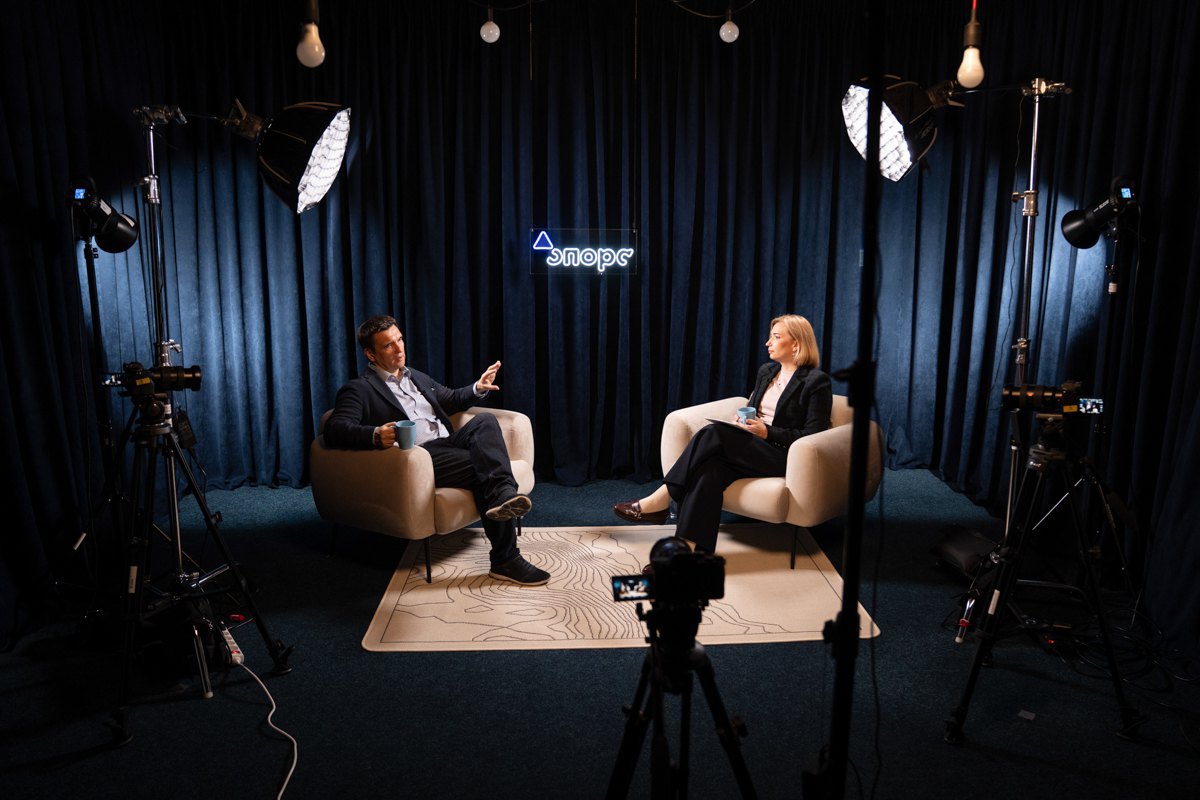
“I think that in conversations between Trump and Putin, or through other channels between them, it has been discussed that the US will no longer provide us with military aid.”
From the debate with US Secretary of Defence Pete Hegseth, it became clear that there are no plans for strategic investments to support Ukraine in the forthcoming budget. These actions will have consequences — a deterioration in the situation — and this is linked to Russia’s strategic interests. Do you see any possibility of influence from the military, who understand this, through communication with politicians to change this strategy?
I do not wish to exaggerate, but I believe that in conversations between Trump and Putin — or through other channels — it has been agreed that the United States will no longer provide us with military aid. What you now see in the new American budget reflects these agreements. For the Russian regime, depriving us of American military support is a fundamental condition for any future talks with the United States.
This does not mean they will not sell us weapons — but Putin wants to agree with Trump on which weapons will be sold, and which will not. For him, it is essential that the Americans withdraw from Ukraine in a military sense.
Putin will press for one or more personal meetings at the appropriate moment, because this is a conceptual matter. He will seek to define what the Americans should — and should not — do.
Will Trump agree to this? I think he will — at least partially.
Trump’s logic is actually very simple. If you want to reach an agreement with someone, you need to maintain contact and avoid irritating them. He learned this in business and applied it to all forms of negotiation. This is important to understand, because we are tempted to think that at some point Trump will lose patience — that he will explode and impose harsh sanctions on Putin.
He does not want to impose sanctions. He wants to exert pressure on Putin by creating leverage. He wants to negotiate — of course, primarily for his own political and business interests. This means Trump sees Putin more as a partner.
He sees him partly as a rival in some areas — but certainly not as an enemy. He wants to negotiate with him. And he does not want to apply pressure merely for the sake of it. If he does exert pressure, it will not be in a way that complicates negotiations. And that is very important to understand.
At the same time, Trump cannot pressure the Europeans and force them to stop assisting us.

Can you give an example of Trump putting pressure on Putin?
It is very simple: he speaks to the Saudis, and they increase oil production — thereby lowering prices — without any additional consultations. This is a classic form of pressure, including on Russia. Such approaches are acceptable in his business-oriented mindset. But the option of imposing sanctions is not.
“The principle of sacrifice in this new story, when Europe is afraid, not only does not work — it works against us. We must become part of their solution.”
The big question is how Europe will act next. Do you see any positive developments?
Are they now ready to help us more? We can see that they have partially compensated for the blocked American aid. We could say to them: “Thank you, let’s shake hands and continue as before.”
The problem with Europeans is that they are still not ready to go further. They are prepared to allocate more funding, to go certain lengths — but they remain unwilling to take serious steps, such as declaring joint nuclear deterrence or establishing a joint air defence shield.
At present, no European country can produce a 21st-century missile defence system. The French–Italian SAMP/T medium-range anti-aircraft missile system partially meets existing needs. European countries are purchasing the American–Israeli Arrow system — in its second and third modifications. Until they begin undertaking serious initiatives, no one will believe that they are truly as capable as they wish to appear.
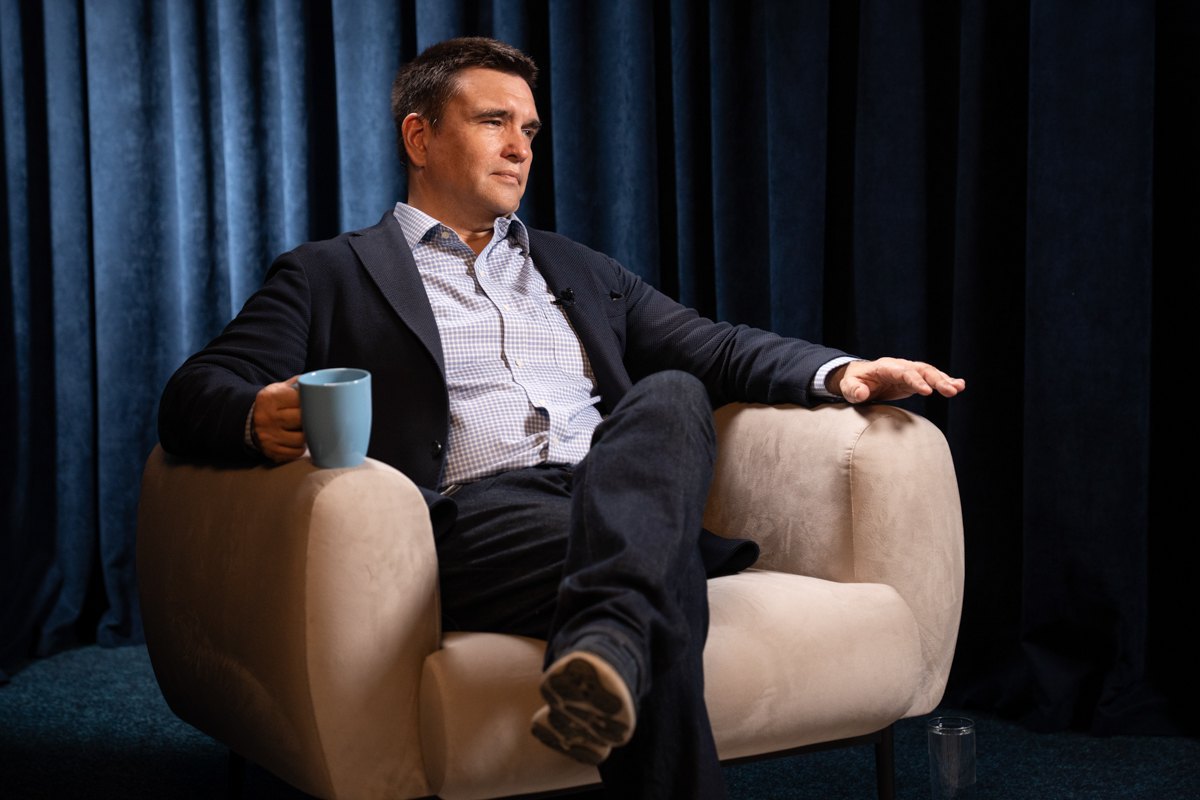
There is, however, a positive aspect. Since the beginning of 2024 — and even in 2023 — Europeans have started to fear that this will affect them. Among the military, and among those working on security issues in both the public sector and in business, people have started considering various response scenarios.
Europe is afraid. It is afraid collectively — and it is afraid individually in each country. The question is whether Europeans will, at some point, be ready to move on to the next stage. My prediction is that European politics cannot evolve gradually — it develops from crisis to crisis. Another crisis will come, and it will trigger a reboot among Europeans.
This is a new and very important story for us — whether they can begin to fear together. If they can, I believe we may see some positive surprises.
This fear should prompt action.
I can see how it already manifests itself in internal decisions.
It is essential for us to become part of those addressing this fear. The principle of sacrifice — in this new context, where Europe is afraid — not only fails to work, but works against us. This is a fundamentally different logic. And it is also very important to understand this, because now we must become part of their decision-making process.








